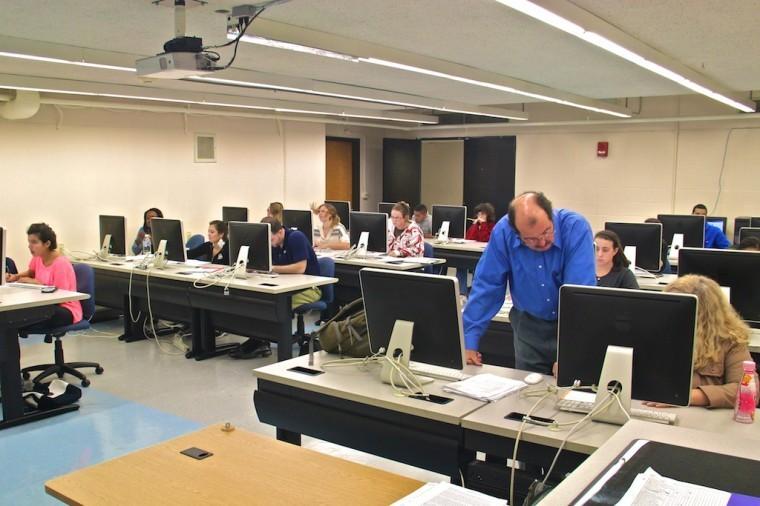Logging on to the Wi-Fi here on campus adds on to the gray hairs I already have. From being a full-time student with a full-time job, adding the stress of second-rate internet is not what I’m looking for. What gives, UMass Boston? All I ever asked for was an easy way to get onto the World Wide Web.
This frustrating experience can partly be attributed to the fact that our connecting to the WiFi on campus is subject to being able to connect to a captive portal. This captive portal technique redirects internet users to a special web page for authentication before being able to access the internet.
Students will likely end up having to connect and reconnect to the WiFi in this fashion up to ten times in a single day. The process is extremely infuriating.
Most other universities I’ve visited, like North Eastern, make use of an authentication mechanism called IEEE 802.1x, which only requires students to enter their credentials one time, regardless of whether they move between buildings or shut their computer. So, instead of having to submit the same credentials multiple times a day to gain internet access, the 802.1x system only requires one instance of authentication.
Why then, is UMass Boston still making use of this archaic and cumbersome method of getting internet access? This is something which should be looked into by the university’s IT department. Hopefully this system, which is lacking in efficiency, will be improved soon.
Our equipment, on the other hand, is up to par.
The computer labs throughout the Healey Library are up to date and running on the latest version of Microsoft Office. There are 73 PCs running on 4GB of RAM in the Red Lab. In the Gold Lab there are 22 PCs running on 4GB of RAM supplemented by a projector for teachers conducting classroom sessions. In the Purple Lab there are 42 PCs, also running on 4GB of RAM, but on a higher level processor.
Excluding the computers on the fourth floor of Healey, there are a total 177 PCs in the library’s five PC labs, all running on 4GB of RAM with different processor speed levels.
All of the PCs in the library are Dell’s Optiplex 380 model. The PCs in the Purple Lab are Optiplex 980, priced at almost double of the others. What makes these computers special is the available maximum RAM of 16GB.
Macs make their presence felt on our campus, too. There are three Mac labs in the library, Mac Labs A, B, and C. Lab A has 18 24-inch iMacs with 4GB of RAM, Lab B has 13 17-inch iMacs with 2GB of RAM, and Lab C has 24 17-inch iMacs with 2GB of RAM. This makes for 55 Macs available to students and teachers who work in a field in which Macs are the preferred utensils to use, like photography or graphic design.
When it comes to serving the population on campus, whether it’s students, professors, alumni or members of the community, we do well for our own. We have about 16,000 students and have somehow made it this far.
It’s also worth noting that the official UMB website was named one of the best college/university sites on the web in September of this year. This honor was conferred on the university by the Center for Digital Education, a national research and advisory institute, specializing in higher education technological trends. The university received honorable mention in the Best of the Web Awards and came in behind only two other schools—Rochester Institute of Technology in Rochester, NY and Savannah College of Art and Design in Savannah, GA.
If I were to make a suggestion, concerning how to improve the efficiency of the technological gadgets available, I would suggest more access to printing stations. Have you seen those lines? I have waited 20 minutes once before going to class in order to print a paper due that day, making me late to class. This is unacceptable.
I have the resources available to me, to print on campus for free, and I can’t even use it. How is this not a rising issue? I am gifted $20 every semester for my printing needs from the university, yet I can’t even use it.
UMass Boston should invest in three more stations on the Campus Center, a station in every academic building, and two more in the library. I guarantee you, member of the UMass Boston community reading this article, that my suggested recommendations will reap positive results and result in less students arriving to class late.

